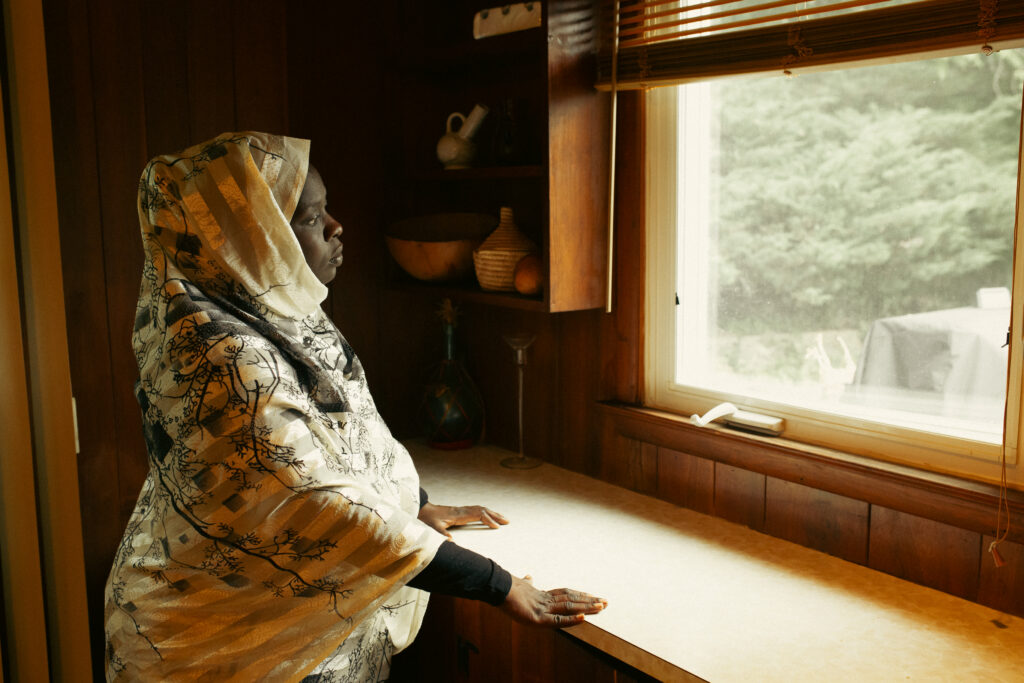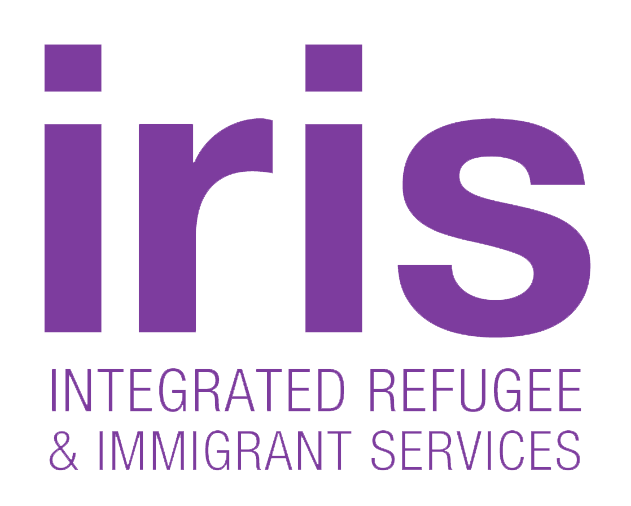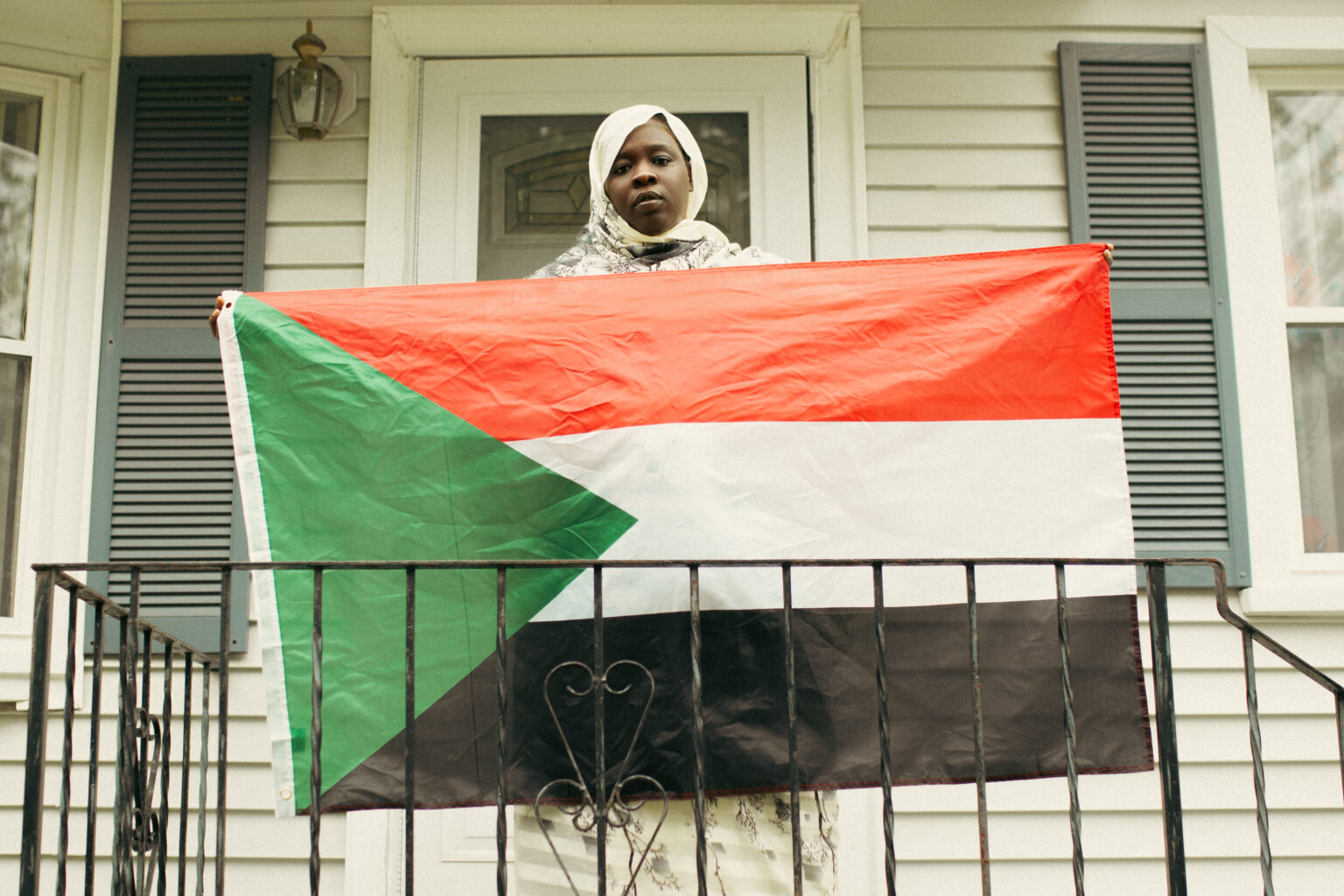By Azhar Ahmed | June 16, 2023
Since the civil war started this April in Sudan, people are dying, losing their families. They don’t have enough water, food, and electricity. People are sick and injured, and they don’t have medical care. There is no security.
When my five-year-old son Kutti saw the war on the news, he said, “Is this our Sudan?”
I had to tell him yes. And he started crying. We didn’t realize he would understand what was happening. Now we don’t use the TV for news anymore.
We went to Sudan last summer. My husband Fouad and I got to see our moms and siblings for the first time since we had to leave. Our kids, Kutti and Lameese, got to know their grandmothers, aunts, uncles, and cousins. They loved it, especially the way we gather in Sudan.
In Khartoum, we stayed in the house where I grew up. When my mom was making tea early in the morning Kutti would wake all of us up. He would yell “Habooba (Grandma) is making tea!” And we would all sit together. The young cousins would play and talk and tease each other. They would stay together all day.
My son said, “There is a lot of food in Connecticut, but there is no tea.” It took me a while to understand what he was saying: He doesn’t mean tea. He means the way we gather.
Now, our family is scattered. With bombs, it is crazy. Nowhere is safe. When the war started, my husband’s youngest brother was traveling for work. He still hasn’t been able to come home. Some of my family stayed in Khartoum. Our neighbor was killed in his own home, just after having iftar with his family. One woman was washing dishes, and she disappeared.
Thirteen of my family members escaped to a town called Kosti. I told them to go, even though the way is dangerous, to get to a hospital. My brother was having terrible pain from a kidney stone. The trip took six hours. The whole way from Khartoum to Kosti, my 16-year-old niece put her face down and covered her eyes; people were dead in the street.
Now, there is fighting in Kosti. It’s so dangerous. It’s like you’re standing on something sharp. If you move, it hurts. If you stay, it hurts.

Some of them stayed. Some were able to get to another place. Some will try to get to Egypt, one by one, bus by bus. It is difficult to travel as a group. At least in Egypt, they can have food. And they will not hear bombs all the time.
My brother said to me our family has never been spread all over like this. Because of the war, we are all around. There is nowhere we can be together again.
This absurd war reminds us of the past war in our home region, the Nuba Mountains. Now war is burning everything, yes everything, in Khartoum, the capital of Sudan, where many of our family members fled. And the war is spreading all over the country. It’s terrifying.
This is a war between two generals. But they’re killing innocent people. Teenage boys are being forced to be soldiers. Fear is everywhere. It’s dangerous when danger becomes normal.
Now the current war has reached the Nuba Mountains. My husband was not able to communicate with his mom and four siblings for more than a month. The city next to theirs is completely gone. We kept calling them. Nothing. We keep praying they are ok.
At the beginning of the war, I could not sleep. Now, I half sleep: Maybe my eyes close, but my heart is awake. I don’t want to miss a phone call in the middle of the night. I just want to hear they’re ok.
All my heart is with my family in Sudan, and my mind is telling me, “You have to be ok.” I feel like I’m a light for them. I have to be strong.
Sudanese Americans like me are doing everything we can to help our families back home. You can support us by signing this petition for the U.S. to grant humanitarian visas to the people in danger in Sudan.
Recently, my son Kutti asked, “Will Sudan be beautiful again?”
I hope.
—
To support organizations on the ground in Sudan, please consider a donation to SAPA or MSF, and sign the petition to urge the State Department to issue humanitarian parole visas to help the people of Sudan enter the US.
Photo © Maher Mahmood



